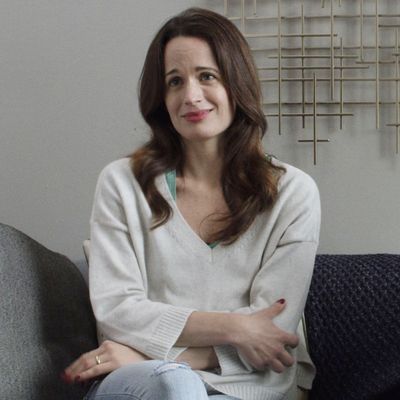
Netflix’s Chicago-based comedy-drama Easy, which debuted last year, was of the best shows that almost nobody seemed to be watching. Season two, which dropped today, will likely earn the same dubious compliment. That’s too bad, because it’s just as appealing and a bit sharper overall. Written and directed by Joe Swanberg in an improvised-seeming style in tight collaboration with his actors, this is a genuinely diverse series appearing at a time when an inclusive vision is reflexively cited as being desirable for its own sake (and it is). There are 20-something, 30-something, and 40-something characters, people of different races, ethnicities, and national origins, and a variety of professions represented. But while not every story told by Swanberg here is equally convincing or interesting, you never get the sense that he’s checking boxes or that his interest in any particular character is less than enthusiastic. The feel is quite modest overall, but this is still a big-canvas project, a mural of modern city life.
You can jump right into season two without watching any of season one. All the stories are self-contained and reach some kind of meaningful resolution at the end. Then, if you feel like it, you can back up and watch season one — and I bet that if you do, some of the recurring characters’ stories from earlier in the show’s run will have a “flashback” feeling. What’s particularly intriguing from the standpoint of form is the way the show splits the difference in season two between an anthology format, where you are introduced to some new characters at the start of an episode and then follow their stories for a half hour and never see them again, and a more traditional series where major characters pop up again regularly.
Easy brings back a few characters from season one in ways that advance or enrich their development — in particular, a 50-something graphic novelist, played by Marc Maron, who’s struggling to move past his own entitlement as a straight white man; a yuppie couple, played by Michael Chernus and Elizabeth Reaser, who decide to try open marriage; and a mixed-race pair of bohemian lesbian creative types, played by Kiersey Clemons and Jacqueline Toboni, who aren’t quite as free of bourgeois neuroses as they want to think. But you still don’t see them more than once or twice in the season. Most of the screen time is claimed by new characters played by Aubrey Plaza, Kate Berlant, Joe Lo Truglio, Michaela Watkins, Judy Greer, and Danielle Macdonald, while key cast members from season one (including Jane Adams, who by this point should be considered indie film royalty on par with Patricia Clarkson) appear in other people’s stories as support.
Everybody is well used here, and you usually get about as much of a character as you want to see without anyone overstaying their welcome to the point where the show seems to be making claims for their interestingness that the writing can’t support. Clemons and Toboni, an alternately charming and maddening couple, show up twice; the episode where they clash over Clemons’s character taking up burlesque is a fascinating case study in situational hypocrisy that presents competing definitions of what it means to be a good feminist. Another episode juxtaposes Od (Odinaka Ezeokoli), a stand-up comic who drives an Uber and a streetcar on the side, and a call girl named Sally (Karley Sciortino, who writes Vogue’s “Breathless” column and blogs at slutever.com), who wants to transform her work into fiction or drama, or maybe the kind of columns that Sciortino writes in real life. At first this pairing seems random (their paths only cross twice in the episode), but after a while you start to see parallels between them, especially in the way they encourage clients of one kind or another to tell their own stories, then try to turn them into art or personal insight.
Of particular note here is the way Swanberg and his actors refuse to condescend to, or caricature, any character, no matter how outwardly hilarious they might seem to be. Easy also avoids the temptation, familiar to a lot of TV shows throughout history, to pretend to examine alternative lifestyles in an open-minded way but ultimately returning to a conservative, “let’s not rock the boat” sort of message. The married couple played by Chernus and Reaser, for instance, would be set up on another series to realize that open marriage was a bad idea and monogamy is always the way to go, but the conclusion of their episode is more complex than that, and resists being read in a binary way as simply “good” or “bad.”
At its best, the series has the tossed-off-yet-alert feel of old-fashioned journalism: whatever story is in front of you, that’s the one you tell, to the best of your ability, regardless of how outwardly “big” or “small” the story might be. Back in the 1930s, the newspaper columnist turned playwright and screenwriter Ben Hecht (The Front Page) wrote a series of columns for the Chicago Daily News, 64 of which were eventually published under the title 1001 Afternoons in Chicago. There were no obvious news hooks to any of the pieces; a lot of the time it seemed as if Hecht just went out and talked to people about their lives until he found an anecdote or predicament with an irony neat enough to hang a byline on. Many people subsequently said that Hecht was writing fiction and passing it off as reporting because there were too many colorful characters and literary-seeming coincidences and twists. The vibe is a bit similar to what Swanberg is doing on this series. It often seems as if the show is going out into the world and looking for stories that it can shape into drama, but resisting the urge to prune all the sharp edges and leave audiences with a moral.


